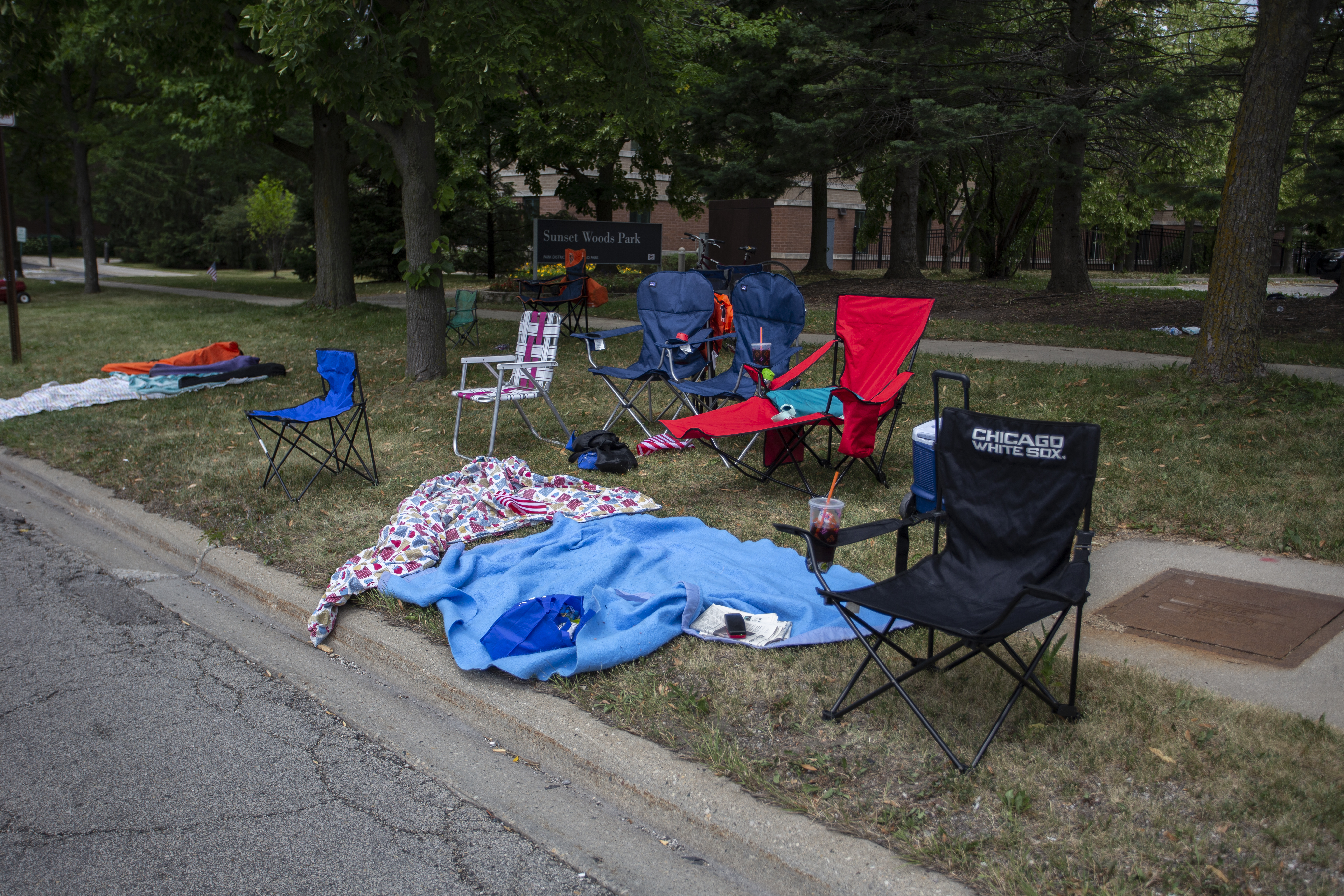Elusive details of one of Joliet’s most gruesome double homicides began to be revealed Monday when the bench trial began for one of four people arrested in the case.
Bethany McKee, 20, is charged with first-degree murder in connection with the January 2013 strangling deaths of Eric Glover and Terrance Rankins, both 22.
During opening arguments, Will County prosecutors said McKee "aided and abetted" in the double murder in order to steal from Rankins so that she and her friends could buy money, alcohol and cigarettes.
But defense lawyers said there's no physical evidence connecting McKee to the murders.
During the trial Monday, a 911 call placed by McKee's father was played in which he told the dispatcher his daughter was involved in a "serious crime."
The call caused Glover's mother, Nicole Jones, to run from the courtroom in tears.
"(I'm) scared ... don't want to go through this ... stressed out," Jones said outside the courthouse. "It's been hell without him. It's been hard on our family -- real hard.
"Ever since this happened, I've been thinking about like what they're gonna say -- is it going to be this, is it going to be that? I'm just really scared," Glover's brother, Mark Johnson, said.
McKee's 20-year-old co-defendant, Alisa Massaro, is already in prison after pleading guilty to robbery and concealment of a homicidal death in exchange for a 10-year sentence.
Defense lawyers said Monday that Massaro should not be believed.
Once McKee’s case is dealt with, two defendants will remain: Joshua Miner, 26, and Adam Landerman, 21.
Will County State’s Attorney James Glasgow has promised to handle the case personally. He hasn’t been in the courtroom for recent hearings leading up to McKee’s trial, but Glasgow spokesman Chuck Pelkie said the county’s top prosecutor still plans to deal with Miner, who will be tried separately.
“[Glasgow] intends to prosecute Miner,” Pelkie said, “and that’s the case we would elect to do next.”

Massaro’s plea deal sparked protests outside the Will County courthouse. Assuming no such deal is reached for McKee, her trial could lift a veil of secrecy that has hung over the case ever since police reports about the slayings were leaked. The leak prompted Kinney to seal the case file and order prosecutors and defense attorneys to stop talking about it.
Local
"This is one of the most brutal, heinous and upsetting things I’ve ever seen in my 27 years of law enforcement," Joliet Police Chief Mike Trafton said in January 2013, before Kinney’s gag order. "Not only the crime scene, but the disregard for common decency toward human beings."
McKee, Massaro, Miner and Landerman were arrested after Glover and Rankins were found dead Jan. 10, 2013, inside Massaro’s Joliet home at 1121 N. Hickory St.
Authorities said at the time the four robbed and strangled Glover and Rankins. A prosecutor has said the group took drugs and money from the bodies. He said Massaro wasn’t there when the men were murdered, but he said she didn’t call police and continued to party with Landerman and Miner.
One police report alleges McKee and Massaro left before the violence began, though the police reports are contradictory. Sources also said McKee called her father to tell him what happened. He purportedly called Shorewood police, who contacted authorities in Joliet.
The most disturbing details of the case were revealed weeks after the arrests — that police reports allege Miner and Massaro had sex on the victims’ bodies, that the group allegedly had a plan to dismember the corpses before disposing of them, and that they talked about keeping the teeth as trophies.
McKee was the only one of the four not present when police arrived at Massaro’s house. She was arrested later in Kankakee with her baby daughter in the car. She was allegedly on her way to visit the child’s father.
McKee and her co-defendants were charged under the legal theory of accountability. Hugh Mundy, an assistant professor at John Marshall Law School, said McKee may be able to show she withdrew from the alleged murder plan by calling her father.
Such a defense could depend on what was said during their conversation — and what happened next.
That could also be why McKee opted for a bench trial, in which the verdict is decided by a judge rather than a jury. A judge is likely to apply a more clinical reading of the law, while a jury could be distracted by emotions.
“There’s some concern that the facts will so inflame the jury that they’ll convict on something less than proof beyond a reasonable doubt,” Mundy said.



